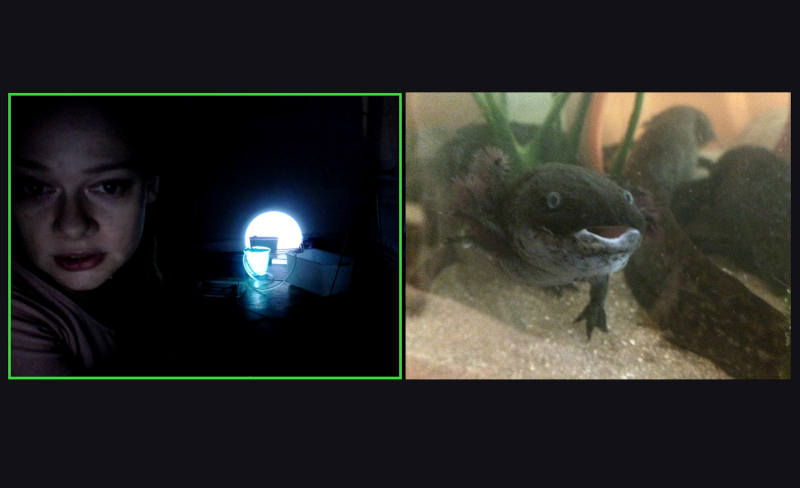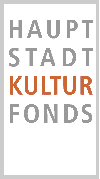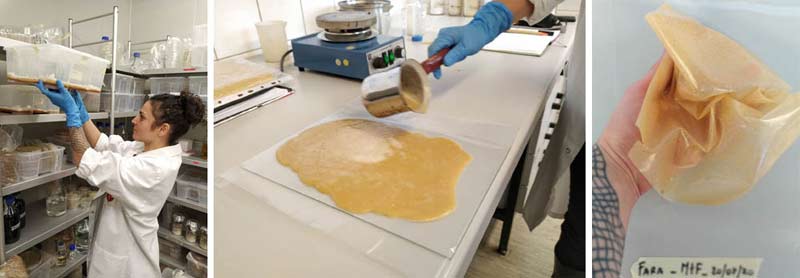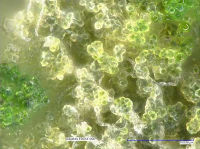
Mind
Blind Pathetic Sublime
Online Performance Lecture by Sarah Hermanutz
16 February 2021, 8 PM

Five
years since she presented the lecture-performance Mind
Blind: Therapeutic Interventions for Human/NonHuman Communications
for Transmediale|Vorspiel 2016, artist Sarah Hermanutz revisits the problems
of social cognition in this time of isolation and multiple intersecting
crises.
While previously this performance played with the discomfort and tensions
of an audience's physical presence made captive within the social conventions
of an in-person lecture, in 2021 the human observers may only join remotely
through Zoom. Within the gallery, the artist will livestream from her
unvisitable installation environment. Seeking comfort, escape, and clarity
amid the leaking infrastructures of our times, she will be using whatever
tools at her disposal to finally help axolotls to understand the Pathetic
Sublime.
Registration required: register@artlaboratory-berlin.org
Organised
by Art Laboratory Berlin in cooperation with Lacuna Lab.
This event is part of the Vorspiel Programme of the CTM and transmediale
2021
Community Dialogs
VIRAL
CLOUD | Berlin Tokyo
A
Network for Hybrid Arts and DIY Bio Cultures
Since
spring 2020 Art Laboratory Berlin and BioClub
Tokyo have been arranging online meetings between hybrid artists and
associates in our respective cities and beyond. These meetings are a forum
for exchange of research, practice and solidarity in times of crises.
(More
information)

Meeting #13 | 9 February 2021, 1 pm CET/ 9 pm JST
Presentations by Hideo Iwasaki and Matthias Rillig
Hideo Iwasaki is a biologist and artist, director of metaPhorest
(biological art/ bioaesthetics platform), Professor, Department of Electrical
Engineering and Bioscience, Waseda University, Tokyo.
Matthias Rillig is Professor at the Institute of Biology, Plant
Ecologies, FU Berlin. They will speak about their ongoing project
as well as artists in lab, and artist/scientist collaborations.
These events are part of the Vorspiel Programme of the CTM and transmediale
2021..
Past
events
Interdisciplinary Symposium
THE
CAMILLE DIARIES Symposium

26 September 2020, 10:00 am – 7:45 pm CET Time Zone
Online conference, with livestream (https://youtu.be/9VAIXGHwj0k)
THE
CAMILLE DIARIES Symposium will discuss new artistic projects by eleven
international women and non-binary artists (installations, video, objects,
performance), currently exhibited in our show The
Camille Diaries. Current Artistic Positions on M/otherhood, Life and Care
(until 4 October 2020).
Reflecting
on the current conditions of our world (environmental changes, gender
aspects, biopolitics, etc.), the artists' positions propose an 'aesthetics
of care' as the basis for inter-species coexistence. Here, the planet
is understood as a symbiotic web in which we are all entangled with one
another (humans, plants, animals, environment) – on molecular, organic,
ethical and biopolitical levels. The artistic positions investigate reproductive
mechanisms, biochemical connections between humans and nonhumans, and
refer to alternative biomaterials as "source of life" in future
times of scarcity and crisis.
The one-day symposium will bring the artists together with researchers
from the humanities and natural sciences into a critical dialogue. In
different panels we will discuss alternative concepts of m/others, wombs
and placentas, fluid inheritance and modes of care.
(More information)
Talk Show Series
Feminist SF: Visions of M/otherhood & Reproduction.
Curated
and hosted by Isabel de Sena
This 3-part
event series pays tribute to the powerful alternative images of mothering
we've inherited through the pioneering work of feminist Sci-Fi writers,
most notably regarding their defiance of conventions on (technological)
reproduction, child-rearing, the maternal body, and sexuality, as well
as their invention of ecofeminism and myriad forms of transspecies kinship.
Rather than a nostalgic reflection, the events examine these authors'
sustained relevance within the current sociocultural and political landscape,
inviting experts from divergent fields (visual arts, gender-studies, literature,
biotechnology and political science) to programme their "ideal TV
and reading evening" on the topic.
Through a live Talk Show format, the selected footage and live readings
are interspersed with conversation, so that the audience (re)discovers
the works through the guest's eyes.
Invited Guests & Schedule
27 August 2020, 6 - 8 pm: Mary Maggic (Artist)
24 September 2020, 6 - 8 pm: Alison Sperling (Scholar
| Literature and Gender Studies)
13 October 2020, 6 - 8 pm: Noemi Yoko Molitor (Artist
and Scholar | Post-Colonial Studies and Queer Art)
All episodes will
be conducted in English
(More
information)
This Talk
Show series takes place in the context of the project The
Camille Diaries. New Artistic Positions on M/otherhood, Life and Care
at Art Laboratory Berlin.
With the
generous support of:


![]()
Associated
project partners:
The project THE CAMILLE DIARIES arose from a generous invitation to
take part in the international curatorial swarm for the open call »M/others
and Future Humans«, initiated by Ida Bencke (LABAE,Copenhagen, DK)
and Eben Kirksey (Princeton's Institute for Advanced Study, USA).
Media partners:
art-in-berlin.de, www.art-in-berlin.de
AVIVA-Berlin Online Magazin für Frauen, www.aviva-berlin.de
Discussion and Livestream
A
Future for Food
with
Amy Youngs, Ken Rinaldo, Anna Paltseva, Daniel Lammel,
Regine Rapp and Christian de Lutz
4
June 2020, 4-6 pm CET / 10-12 am EDT
Can we break away from current agricultural practices which are intimately connected to desertification, water and soil pollution, antibiotic resistance, climate change and social and economic inequalities? In a two-hour discussion we are interested in considering a sustainable, multispecies perspective to farming, which could start in the soil and progress through thinking about the multiple ways we can consider food. Aquaponics, vertical farming, worms, soldier flies, and permaculture offer real solutions, where food is grown while respecting living beings, and the intertwined ecologies that support them.
Humane food can be grown in urban or rural communities, though the soil is critical. How can we learn and care about living beings we cannot quickly know or see? What is care like in practice? We are also interested in exploring the concept of "citizen eco-artist" as so much of what we do resides in the spaces between actual science, sustainable practice and speculative fiction.
(More information)
A coproduction of the Network for Prototyping the Future and Art Laboratory Berlin
With the generous support of the Senate Office for Culture and Europe:

Discussion Workshop and Livestream
Mind the Fungi
MATERIAL DRIVEN DESIGN. Sculpting with Bioplastic Textile
Workshop/ Livestream with Fara Peluso
6 May, 2020 6-8 pm CET

Today Material Research is a central point in the theory and practice of designing new technologies, in cooperation with art and design. These fields are currently collaborating, merging their knowledge and practice to develop a new generation of materials, by focusing on specific characteristics, to create new environmentally friendly materials. Another approach, however, has also arisen in the last years combining making, crafting and personal fabrication of new materials through a form of Do It Yourself (DIY) biology and craftmaking.
This Mind the Fungi workshop discusses this new material driven design movement and methodology, learning how to build a new material by studying and using a living organism like mycelium. Discovering the features, possibilities and limits of mycelium-based materials, the participants will work together growing material and developing new material, building sculptures, assembling DIY packaging and drawing and cutting patterns on a new material made of biofilm.
Due to the COVID-19 crisis the initial workshop has been postponed and will hopefully take place later this year.
On 6 May a livestream talk and workshop with Fara Peluso took place. Documentation here
Fara Peluso, a Berlin based artist-designer, graduated in industrial design and graphic design at University of Spienza, Deptm. for Architecture, Rome. Through speculative research her work connects the human being with nature, living organisms and biological processes to form a deeper relationship. Together with biologists, she has pursued deep research into algae, taking constantly inspiration from them, experimenting and understanding how to work with them inside the fields of Art and Design. In collaboration with BioArt Laboratories in Eindhoven, she developed the prototyping of a speculative wearable accessory, WeaReactor, which connects the algae's photosynthesis process with the breath of the wearer (exhibited at DDW17 in Eindhoven in 2017; at Art Laboratory Berlin in 2019). Peluso has extended this knowledge over the last 15 months by working with researchers at the TU Berlin Institute of Biotechnology on mycelium-based materials as an artist-designer-in-residence in the project Mind the Fungi.
Mind the Fungi (2018-20) is a collaborative project between the Institute of Biotechnology TU Berlin and Art Laboratory Berlin. Biotechnologists and process engineers are researching local tree fungi and lichens (Prof. Vera Meyer/ Applied Molecular Microbiology; Prof. Peter Neubauer / Bioprocess Engineering). The focus is on developing new ideas and technologies for fungal and lichen based materials for the future. Art Laboratory Berlin bridges the gap between science, art, design and the public and offers various Citizen Science formats. The Artist- and Design-Residencies with Fara Peluso and Theresa Schubert bring in art and design as constructive sources of ideas for this research project.
(More information)
With the
generous support of the Technische Universität Berlin as part of
the program Citizen Science - Forschen mit der Gesellschaft:

Discussion
Workshop and Livestream:
DIY
Hack the Panke
Microplastics
and Coexistence
Kat
Austen and Nana MacLean
Wednesday
22 April 2020 from 5:30-7:00 pm

More
information and video documentation
What we
consider to be our environment unequivocally and ubiquitously contains
plastic. It has been found at the outskirts of human reach: at the top
of Mount Everest, in Arctic ice, and at the bottom of the Mariana trench.
Plastic is becoming part of our geology and the lively surrounding of
many organisms on this planet – a new material and habitat providing
new stories and life forms.
The overabundance of this human-made material challenges our concepts
of the natural and former sites of waste and refuse might have
gotten a new fertile potential: Trees grow on plastic dumps, bacteria
and fungi evolve to feed on PET. Plastic might be disrupting our idea
of nature but is it really disrupting nature itself?
Previous Events:
2020

Mind the Fungi
Open Lab Night
at the Institutof Biotechnology/ Bioprocess Engineering, TU Berlin
Ackerstr. 76, Raum Z20, Hof 3 Aufgang F, 13355 Berlin
The Art & Science project Mind the Fungi is a cooperation between the Institute of Biotechnology at the TU Berlin and Art Laboratory Berlin and is dedicated to the research of local fungi and lichens. Scientists of the Department of Bioprocess Engineering will give short presentations to give an insight into the world of lichens and their potential for new natural products is presented. Afterwards, production tools, in particular bioreactors, that are used to reproduce the lichen cultures and their valuable materials, will be presented. There is also the opportunity to have hands-on experiences with the material – even under the microscope. Using lichens from the environment, experimental methods for isolation and characterization in laboratory experiments will be shown and the morphology of the symbiosis observed under the microscope.
Lichens represent a symbiosis of algae and fungi. Fungi and lichens offer a resource of diverse substances, the spectrum ranges from compounds to fine and basic chemicals such as bioplastic components to valuable food components and even building materials. In the case of lichens, the cultivation for the production of such diverse products is still at the beginning. Appropriate isolation and subsequent bioprocess optimization should greatly shorten growth times and unlock the potential for producing valuable substances.
The bioengineering research is expanded through artistic and design-based approaches. The Institute of Biotechnology works together with Berlin artists and designers to develop new ideas and technologies for the mushroom and lichen-based materials of the future and would like to involve the public in these developments.